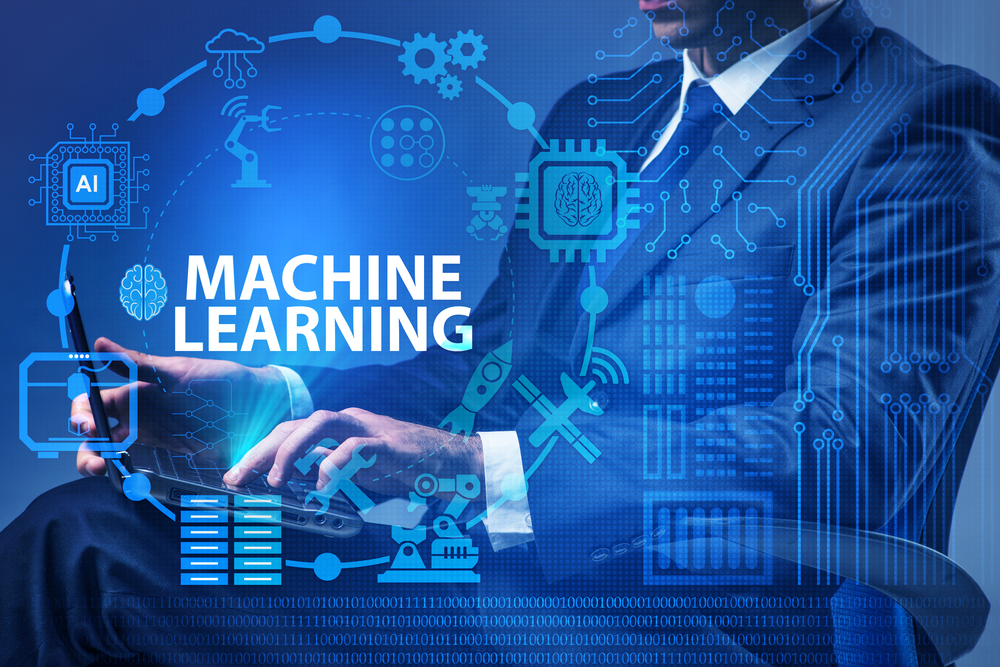Machine Learning - The Math of it all!

Incomprehensible jargon for the layman, machine learning has recently gained worldwide attention and popularity. Having witnessed a rapid rise of its use in daily life, you must be curious about what this subject actually entails.
Machine learning is the nucleus of all virtual systems and devices. It provides systems the ability to learn automatically and mend with experience without explicit programming. Machine learning emphasizes on the development of computer programs which access data to learn, resulting in enhanced predictability.
But where does mathematics come into play?
Many easy-to-use machine learning packages like Weka, scikit-learn, R-caret and Tensorflow have witnessed a surge in their use. But even though programming is the primary key to ML, a thorough knowledge of mathematics is essential for understanding the ML techniques better. Thus, in all actuality, machine learning lies at the intersection of four crucial blocks of mathematics.
These are:
- Linear Algebra,
- Statistics and Probability,
- Calculus, and
- Optimization.
Still wondering if maths can refine your programming skills? Let us segment these four blocks and learn about the relevance of each of these individually.
Linear Algebra:
Linear algebra is the field which puts vectors, linear transforms, and matrices in one frame. A primary building block in ML, it finds usage in notations for describing the operation of algorithms and in implementation of algorithms in the given code. The Robin to machine learning, i.e Batman, linear algebra acts as its support system. A part of continuous mathematics, linear algebra finds use in a plethora of ML algorithms. In addition, it allows efficient modeling and computation of natural phenomena.
Statistics and Probability
The disciplines of statistics and probability are interlinked. These lie in close relevance with the field of machine learning. Algorithms that learn from data and provide subsequent insights are developed on the lines of statistics and probability. Employing this can effectively build intelligent applications. Where the later’s domain is concerned with the prediction of the likelihood of events, the former deals with the analysis of the frequency of past events. Thus, a fusion of these in line with machine learning helps in curating smart algorithms.
Calculus
This branch of maths monitors the rate of change in properties. Primarily, it is classified as differential and integral calculus. Fundamental knowledge of calculus is mandatory to comprehend the change in functions over time, i.e. derivatives and for the calculation of total amounts of a quantity accumulated over a period of time, i.e. integrals. Also, understanding calculus allows you to comprehend functions better and speak about their properties precisely. Thus, an intrinsic field of mathematics, a grip on calculus is essential to cultivate the spirit of machine learning.
Optimization
Optimization stands at the core of every business, economic, social and personal decision. Techniques of optimization have been used since long by engineers and the like to give better solutions. Even though less attention is paid on this section of mathematics, the weightage of this block is equivalent to all the others. If this piece goes missing, it’ll fail to complete the puzzle which runs on data. Thus, getting accustomed to optimization is crucial for machine learning experts. This is essential in order to use data effectively and to look for better outcomes in a complex multidimensional space.
An amalgamation of four different fields, mathematics lies at the heart of machine learning. Thus, a brief tete-e-tete with mathematics can make your foray into this field easier and brisker. Machine learning has emerged as the most important and widely used tool today. So, it definitely sounds lucrative to get a grip over the basics of mathematics before deep-diving into this pool.
It is time to redefine your expertise with a shade of mathematics. Gear up!
Login to continue reading
And access exclusive content, personalized recommendations, and career-boosting opportunities.















Comments
Add comment